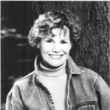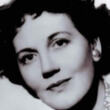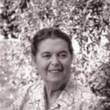Matilda
Description
More Details
9781524754655
9781101654316
9781611761849
Excerpt
Similar Titles From NoveList
Similar Authors From NoveList
Published Reviews
Booklist Review
*Starred Review* Matilda Wormwood is a precocious little girl. By the time she was three, she could read the newspaper, and by age four, she'd finished all of the library's children's books and sat happily pinned under the weight of Great Expectations. Her parents, however, can see no value in reading. Mr. Wormwood is a cheat of a used car salesman and his wife is vain and vacuous. To them, Matilda is seen not so much as a genius, but as an inconvenient piece of gum stuck to the bottom of their shoes. Neglected but not dispirited, Matilda finally sees things turn around when she begins attending Crunchem Hall Primary School. Here, her kind teacher, Miss Honey, immediately recognizes how Matilda would have skipped straight to the top class if it weren't for the terrible Headmistress, Miss Trunchbull. Dahl paints a wonderfully wicked picture of this heartless tank of a woman. She is a gigantic holy terror, a fierce tyrannical monster, who despises children and should generally be treated as if she were an enraged rhinoceros. One day Miss Trunchbull unjustly accuses Matilda of playing a prank on her, and all the girl's pent-up anger and frustration unleashes itself in a most magical way. Originally published in 1988, Matilda has established itself as a children's touchstone for good reason. The line between the heroes and villains is clearly drawn, revenge is applauded in a most satisfying way, and all victories are had at the hands of children. Dahl exaggerates to the point of absurdity, which makes his cruelest characters (usually adults) more comical than terrifying, a quality perfectly echoed in Blake's loose, cartoonish line drawings. Readers will revel in Dahl's wordplay and in bookish Matilda's triumphs. A fantastically funny and empowering story of happily-ever-after.--Smith, Julia Copyright 2016 Booklist
Publisher's Weekly Review
Matilda is an extraordinarily gifted four-year-old whose parentsa crass, dishonest used-car dealer and a self-centered, blowsy bingo addictregard her as ``nothing more than a scab.'' Life with her beastly parents is bearable only because Matilda teaches herself to read, finds the public library, and discovers literature. Also, Matilda loves using her lively intelligence to perpetrate daring acts of revenge on her father. This pastime she further develops when she enrolls in Crunchem Hall Primary School, whose headmistress, Miss Trunchbull, is ``a fierce tyrannical monster . . . .'' Adults may cringe at Dahl's excesses in describing the cruel Miss Trunchbull, as well as his reliance on overextended characterization at the expense of plot development. Children, however, with their keenly developed sense of justice, will relish the absolutes of stupidity, greed, evil and might versus intelligence, courage and goodness. They also will sail happily through the contrived, implausible ending. Dahl's phenomenal popularity among children speaks for his breathless storytelling charms; his fans won't be disappointed by Matilda. Blake's droll pen-and-ink sketches extend the exaggerated humor. Ages 9-11. (Oct.) (c) Copyright PWxyz, LLC. All rights reserved
School Library Journal Review
Gr 3-6-Matilda is the star of Dahl's delightfully far-fetched tale of a girl remarkably precocious and strong. She has no idea how advanced and insightful she is since she has had to cope as best she could on her own. Finally allowed to attend school, Matilda faces evil head teacher, The Trunchbull. She finds solace in sweet, surprisingly brave Lavender and perfect Miss Honey. In the end, Matilda and her magical strength win the day and change everything. Sprightly music introduces some segments. Kate Winslet's narration makes listeners feel as though they are at Crunchem Hall along with the delightfully British students. Her pacing is perfect, and she flawlessly captures Matilda's strength and sweetness and gives a unique voice to each student. Standouts include her voicing of Brucie and Hortensia. American children may need some help understanding occasional British terms and turns of phrase. Hopefully the pinkish box won't scare off the boys, as this is gem to be enjoyed by all.-Jane Newschwander, Fluvanna County Public Schools, VA (c) Copyright 2013. Library Journals LLC, a wholly owned subsidiary of Media Source, Inc. No redistribution permitted.
Kirkus Book Review
After some autobiographical excursions, Dahl here returns to the sort of whimsically grotesque fantasy that makes grown-ups wince and children beg for more. His heroine is five-year-old Matilda, a genius whose mathematical abilities, as well as her impressive reading list (Hemingway, Steinbeck, etc.), are totally unappreciated by her father--a dishonest used-car salesman--and her mother, a devotee of bingo and TV soaps. Only when the girl enters school does she find an understanding ally, Miss Honey, a paragon of virtue who attempts to defend her pupils against unbelievably cruel headmistress Miss Trunchbull, who hates children in direct proportion to their youth and tortures them accordingly. Just when things seem to be at their worst, Matilda discovers still another gift, telekinesis, enabling her to defeat the horrible Trunchbull and give Miss Honey, and herself, a new start. Dahl's tightly woven plots, his strict sense of absolute justice, and his raunchy ""funny bits"" make him popular with children who also appreciate the empowerment he grants to his smaller, weaker protagonists. Matilda is the most simplistic of his efforts in this direction, but it does retain the time-honored appeal, abetted by Blake's apt illustrations. It probably should be marked ""For Children Only,"" though. And Dahl slips badly when he says that C.S. Lewis and J.R.R. Tolkien have no ""funny bits"" in their books. Copyright ©Kirkus Reviews, used with permission.
Booklist Reviews
*Starred Review* Matilda Wormwood is a precocious little girl. By the time she was three, she could read the newspaper, and by age four, she'd finished all of the library's children's books and sat happily pinned under the weight of Great Expectations. Her parents, however, can see no value in reading. Mr. Wormwood is a cheat of a used car salesman and his wife is vain and vacuous. To them, Matilda is seen not so much as a genius, but as an inconvenient piece of gum stuck to the bottom of their shoes. Neglected but not dispirited, Matilda finally sees things turn around when she begins attending Crunchem Hall Primary School. Here, her kind teacher, Miss Honey, immediately recognizes how Matilda would have skipped straight to the top class if it weren't for the terrible Headmistress, Miss Trunchbull. Dahl paints a wonderfully wicked picture of this heartless tank of a woman. She is "a gigantic holy terror, a fierce tyrannical monster," who despises children and should generally be treated as if she were an "enraged rhinoceros." One day Miss Trunchbull unjustly accuses Matilda of playing a prank on her, and all the girl's pent-up anger and frustration unleashes itself in a most magical way. Originally published in 1988, Matilda has established itself as a children's touchstone for good reason. The line between the heroes and villains is clearly drawn, revenge is applauded in a most satisfying way, and all victories are had at the hands of children. Dahl exaggerates to the point of absurdity, which makes his cruelest characters (usually adults) more comical than terrifying, a quality perfectly echoed in Blake's loose, cartoonish line drawings. Readers will revel in Dahl's wordplay and in bookish Matilda's triumphs. A fantastically funny and empowering story of happily-ever-after. Copyright 2016 Booklist Reviews.
Publishers Weekly Reviews
Matilda is an extraordinarily gifted four-year-old whose parentsa crass, dishonest used-car dealer and a self-centered, blowsy bingo addictregard her as ``nothing more than a scab.'' Life with her beastly parents is bearable only because Matilda teaches herself to read, finds the public library, and discovers literature. Also, Matilda loves using her lively intelligence to perpetrate daring acts of revenge on her father. This pastime she further develops when she enrolls in Crunchem Hall Primary School, whose headmistress, Miss Trunchbull, is ``a fierce tyrannical monster . . . .'' Adults may cringe at Dahl's excesses in describing the cruel Miss Trunchbull, as well as his reliance on overextended characterization at the expense of plot development. Children, however, with their keenly developed sense of justice, will relish the absolutes of stupidity, greed, evil and might versus intelligence, courage and goodness. They also will sail happily through the contrived, implausible ending. Dahl's phenomenal popularity among children speaks for his breathless storytelling charms; his fans won't be disappointed by Matilda. Blake's droll pen-and-ink sketches extend the exaggerated humor. Ages 9-11. (Oct.) Copyright 1988 Cahners Business Information.
School Library Journal Reviews
Gr 4-6 Dahl's latest piece of madcap mayhem is a story filled with the elements that his fans cravesardonic humor, the evilest of villians, the most virtuous of heroines, and children who eventually defeat those big bad grown-ups. In this book, Matilda isn't just smart, she is ``extra-ordinary. . .sensitive and brilliant,'' reading Great Expectations as a four year old. Unfortunately, her TV-addict parents neither recognize nor appreciate their daughter's genius. Neglected Matilda finds mentors in librarian Mrs. Phelps and teacher Miss Honey, a woman as sweet as her name implies. Miss Honey, Matilda, and other students are tormented by the child-hating headmistress Trunchbull. Trunchbull has also cheated orphaned niece Miss Honey out of her rightful inheritance, leaving the teacher in extreme poverty. Having practiced revenge techniques on her father, Matilda now applies her untapped mental powers to rid the school of Trunchbull and restore Miss Honey's financial security. If the conclusion is a bit too rapid, the transitions between Matilda's home and school life a bit choppy, and the writing style not as even as in some of Dahl's earlier titles, young readers won't mind. Dahl has written another fun and funny book with a child's perspective on an adult world. As usual, Blake's comical sketches are the perfect complement to the satirical humor. This may not be a teacher's or principal's first choice as a classroom read-aloud, but children will be waiting in line to read it. Heide Piehler, Shorewood Public Lib . , Wis. Copyright 1988 Cahners Business Information.




































